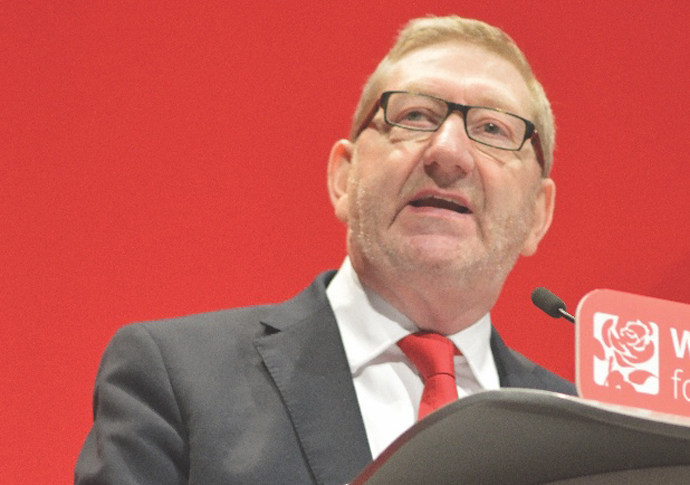Rhyme & reason
Poetry may seem an unusual passion for a politician, but ‘the technical pursuit of a shimmer of power’ is not for Jeremy Corbyn, as revealed in his new anthology of verse. Anna Lamche reports
Thursday, 30th November 2023 — By Anna Lamche

Jeremy Corbyn MP
IT is rare to catch a glimpse of the “real” person behind the politician. The last decade is littered with examples of leaders who seem to have no real interests beyond furthering their careers.
David Cameron, a supposed Aston Villa fan, mistook his favourite team for West Ham in 2015. Shortly after, Theresa May delivered her now-infamous line about running through fields of wheat, and in the lead-up to the last general election a visibly uncomfortable Boris Johnson claimed to make model buses in his spare time.
It was inevitable that Islington North MP Jeremy Corbyn would sit uncomfortably against this backdrop. It is common knowledge that he tends an allotment and makes jam from the fruit he grows there. Perhaps less widely known is his love of poetry, now embodied in an anthology of verse published this month by the New York-based independent press OR Books.
The volume, titled Poetry for the Many, contains more than 50 poems selected and introduced by Mr Corbyn and his friend and comrade, the trade unionist Len McCluskey. The poems span a range of themes and movements and offer an insight into the long and distinctive poetic tradition to which socialism has given rise.
The final poem in the volume, “Calais in Winter”, is written in free verse by Mr Corbyn himself, documenting a trip to the French refugee camps. Speaking to Review, he said: “I think it’s important to have other interests and other ideas… I do read poetry, and I’ve got a lot of poetry books. I’m not pretending I’m an expert – I’m not. I’m not pretending it’s good poetry; that’s for others to judge. But I do think that when anyone writes a poem, they’re saying things they wouldn’t put in a speech and wouldn’t say to anybody else, but they express it on paper.”
Some MPs do not cultivate their outside interests so assiduously. “I spend some time around parliament and overhear conversations and I realised that many probably don’t have inner lives at all – they spend their lives in sort of a technical pursuit of a shimmer of power,” Mr Corbyn said.

Len McCluskey [Rwendland_CC BY-SA 4.0]
Poetry for the Many came into being following a recital in Liverpool during which Mr Corbyn and Mr McCluskey read several of their favourite poems to the room. Mr Corbyn recalls that the meeting was interrupted by an audience member: “He said, ‘I’ve got my poem, can I read it?’ I said go ahead. So this kid pulls his mobile phone of out his pocket and reads his poems… the whole point of this event was that poetry is for everybody.”
For Mr Corbyn, poetry offers an alternative to the “declamatory” public meeting where “people come and they either agree or disagree”. Poems open up space to talk about ideas, Mr Corbyn said.
“Nobody’s 100 per cent for them, but no one’s 100 per cent against them. They then start exploring the ideas and experience that goes with it.”
The volume contains all the usual suspects, including Shelley’s Masque of Anarchy – the radical poem containing the line “Ye are many, they are few” that inspired Mr Corbyn’s campaign slogan during the 2019 general election – along with less explicitly political poems, including Shakespeare’s sonnets.
Also featured are selections made by the actress Maxine Peake, filmmaker Ken Loach and children’s author Michael Rosen.
There are notable absences. For example, the hugely influential poetry of Bertolt Brecht goes unrepresented here – but as Mr Corbyn writes, “the hardest part about putting the book together was deciding what to leave out”.
The spirit of Poetry for the Many is captured in the title of James Oppenheim’s Bread and Roses, one of the works selected for the volume by Mr McCluskey. As the former Unite general secretary explains in his introduction, the slogan advances a form of socialism that undergirds “the right not just to what is necessary to live, but also to life’s beauty and pleasure”.
The right to sustenance and beauty was a current rippling across Mr Corbyn’s political project: he pledged an extra £160million in funding for music, dance and drama departments in schools across the country and launched a Charter for the Arts in the run-up to the 2019 general election.
At the time, the commitments were rubbished by a cynical media circus; as Mr Corbyn’s former chief of staff Karie Murphy notes in her introduction, neither her former boss nor Mr McCluskey “fare well in the reporting of a mainstream media in thrall to vested interests”.
Among Mr McCluskey’s selections is Do Not Go Gentle into That Good Night, a poem by the Welsh poet Dylan Thomas. As he notes, the poem is “often read at funerals” but “has an important message for Jeremy too” in the wake of defeat.
As the left is purged from the Labour Party and Mr Corbyn’s dream of a world in which young people “enjoy reading and writing poetry” slip down the political agenda, Poetry for the Many is a defiant affirmation of all Mr Corbyn argued for. The publication of the book reflects an attitude articulated in Dylan’s final lines: “Do not go gentle into that good night./ Rage, rage against the dying of the light.”
• Poetry for the Many. By Jeremy Corbyn and Len McCluskey. With a foreword by Melissa Benn and introduction by Karie Murphy. OR Books £17